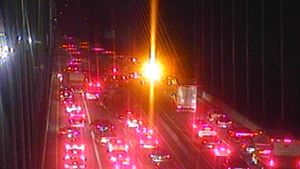Canada has recently witnessed legal outcomes stemming from the events surrounding the Freedom Convoy protests. Although the protests began as part of resistance against COVID-19 restrictions, they soon morphed through various phases, bringing significant legal scrutiny upon participants and authorities alike. Now, several proceedings connected to the protests, involving both criminal and civil matters, are coming to light, leaving many to ponder about justice and accountability.
One prominent case involves Dana Metcalfe and Shane Sweeney, two individuals who were charged after organizing a pop-up convoy protest outside Premier Andrew Furey’s residence back in July 2023. The incident had serious allegations attached to it, including claims of harassment directed at the Premier’s family. Metcalfe and Sweeney failed to deliver the kind of apologies one might expect. Instead, they resolved the matter by accepting terms of peace bonds and insisted their acts were purposeful, driven by advocacy for children's rights and social issues.
“Oh, 100 percent. We’ve created enough of a stir of the pot, so to speak, so parents have a clearer sense of what’s happening,” Metcalfe stated after the court’s decision. “When you stand up for what you believe and stay steadfast, change can happen. This is definitely a big win.” The court agreed not to impose criminal charges but issued peace bonds requiring them to maintain distance from the premier's residence.
Meanwhile, the legal fallout from the Freedom Convoy’s confrontational tactics continues to be under examination. This reality was apparent during the Crown's case against prominent figures Tamara Lich and Chris Barber. Both Lich and Barber faced serious charges arising from their leadership roles during the protests, accused of various offenses including mischief and obstruction.
Prosecutors, led by Assistant Crown Attorney Tim Radcliffe, filed extensive documents outlining their case. Their PowerPoint presentation to the court was nothing short of elaborate, featuring over 100 slides summarizing their arguments and legal rationale. They emphasized the need for accountability, portraying the protests not merely as acts of civil disobedience but also as serious disruptions to public order and safety.
The pretrial rhetoric set the stage for intense scrutiny of the legal processes surrounding the convoys. Questions about whether the protests were peaceful or disruptive lingered, with many critics arguing the latter. Defenders of the movement countered, framing it as legitimate dissent against governmental overreach.
Legal experts have weighed heavily on the Freedom Convoy’s historical significance. It has drawn comparisons with past protests, showcasing how both public sentiment and legal frameworks adapt over time. The careful navigation through these historical precedents is evident, as the judicial outcomes may feed back to public perceptions of civil rights.
Simultaneously, the opposition and support for these protests also seem to trigger larger debates about freedom of speech and the limits of protest. Were participants exercising their rights, or were they crossing the line? That seems to be the crux of many arguments persisting throughout these cases.
The overall backlash against the Freedom Convoy is translated not just through the courtrooms, but also through broader social discourse. Supporters have claimed governmental overreach and suppression, punishing those who dared to dissent. Meanwhile, detractors point to court outcomes as necessary consequences for reckless behavior during the protests. The debate remains heated.
The aftermath of the protests extends beyond just legal battles. It has unearthed underlying ideological divides within Canadian society, challenging notions of belonging and community. The Freedom Convoy protests and their related legal proceedings continue to be contentious, holding much weight on public sentiment.
Looking to the future, the outcomes of these various cases could shape how protests are managed within Canada. Observers believe court decisions will set legal precedents, altering how dissent is handled by authorities moving forward. Both sides of the argument await these conclusions, hoping for validation of their beliefs.
It seems the Freedom Convoy protests are not solely about the events themselves, but have sparked significant dialogue around governance, civil liberties, and public safety — questions whose answers we will continue to explore as these legal battles progress.
The legal entanglements include significant public interest, as they reveal the tension between governance and civil action nowadays. With more cases on the horizon, it remains to be seen how these outcomes will shape the narrative surrounding civil liberties and the right to protest within Canada.



